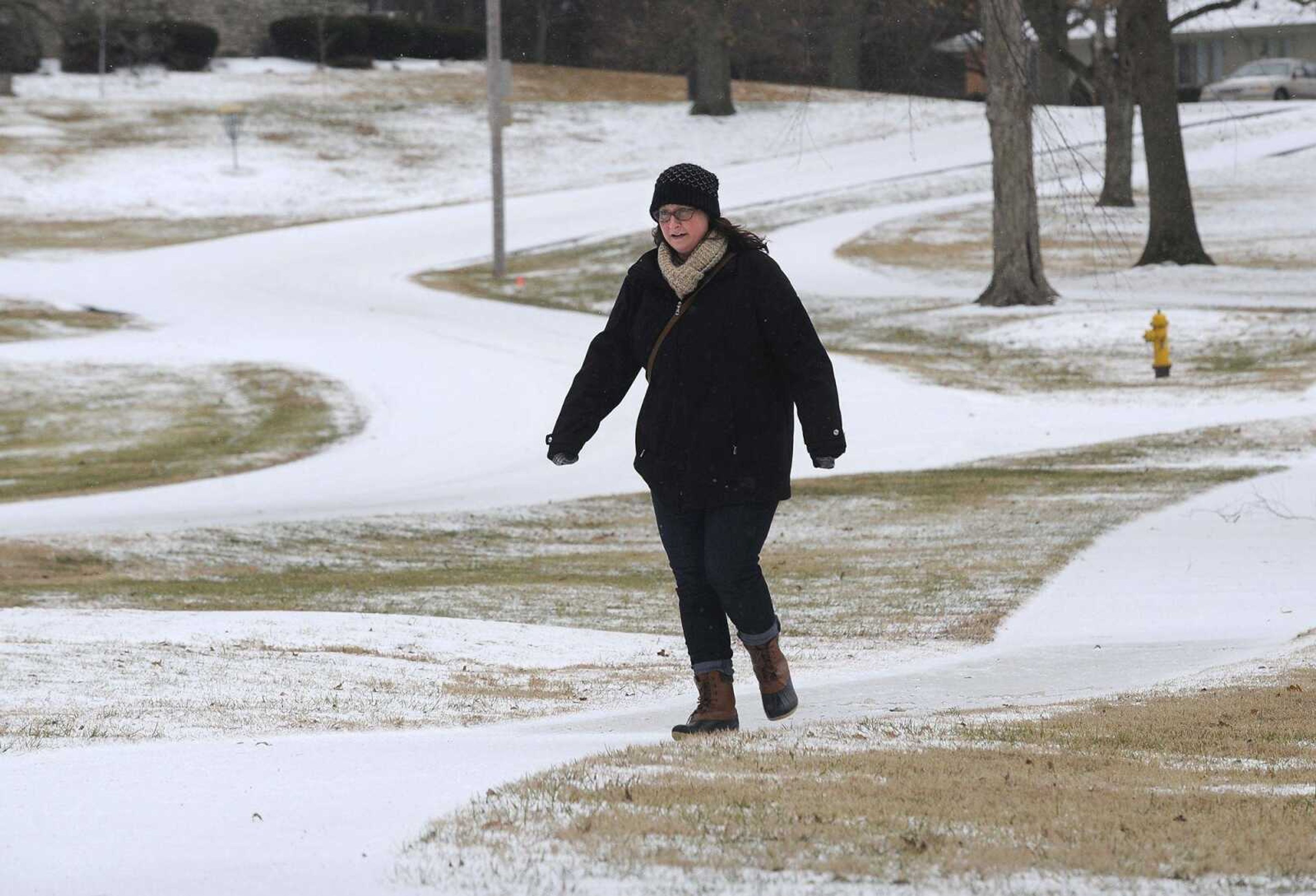Ice, frigid temps move in; snow in the forecast
The winter-weather system that moved through Cape Girardeau on Thursday and Friday dropped almost three-tenths of an inch of precipitation by Friday afternoon, and with freezing temperatures in the forecast, road conditions aren�t likely to improve over the weekend...
The winter-weather system that moved through Cape Girardeau on Thursday and Friday dropped almost three-tenths of an inch of precipitation by Friday afternoon, and with freezing temperatures in the forecast, road conditions aren�t likely to improve over the weekend.
The weather system that moved through late Thursday brought temperatures from a high of 63 degrees to a low of 28, and the National Weather Service officially recorded 0.29 inches of precipitation at Cape Girardeau.
More snow is expected Sunday, NWS meteorologist Ashley Ravenscraft said Friday.
Another system will move in sometime Sunday, she said, and while accumulations are difficult to gauge so far out, this storm could drop half an inch or more snow on top of Thursday and Friday�s accumulation.
Added to that issue is the temperature, Ravenscraft said.
The temperature isn�t expected to get above freezing before Monday, Ravenscraft said, but she emphasized the importance of checking back with weather forecasts periodically.
�These things do change,� Ravenscraft said.
Cape Girardeau Regional Airport manager Bruce Loy said a crew has been working hard all night to de-ice the runway, but it�s tough going.
Loy said the Thursday-night flight from Chicago was canceled, and as of 2 p.m. Friday, both flights for the day already had been called off.
Low temperatures make de-icing the runway especially challenging, Loy said, because regular salt is too corrosive to be used.
Corrosion and airplanes don�t mix, Loy said.
Instead, Loy said, the crews use urea � �basically fertilizer pellets,� he said. It�s less expensive than a lot of other chemicals, but it�s also less effective than the high-end, costly products.
�When we get ice storms, it makes it very difficult to do something with them unless we get sunlight or warmer temperatures the following day,� Loy said Friday. �We�re hoping sometime this afternoon the chemical we have down will work, break up the remaining ice.�
Said Loy, �It�s causing some problems.�
January�s average monthly temperature is 26.8 degrees so far, as of Friday afternoon, according to National Weather Service data. Preliminary numbers for January show a range from 63 degrees Jan. 11 to minus 3 on Jan. 2 in Cape Girardeau. Normal average is 33 degrees for January.
Total precipitation in January is almost half an inch under the normal total, 1.26 inches, so far this month.
December saw nearly an inch and a half less precipitation than normal, according to NWS data.
November�s precipitation was nearly two inches less than normal, at only two and a half inches of precipitation, according to the NWS.
From December 2016 to February 2017, record high temperatures and relatively dry conditions along with hardly any snowfall contributed to an especially mild winter, according to NWS data.
The Missouri Department of Transportation has an updated map of road conditions at traveler.modot.org, and urges motorists to use caution in wintry conditions.
mniederkorn@semissourian.com
(573) 388-3630
Connect with the Southeast Missourian Newsroom:
For corrections to this story or other insights for the editor, click here. To submit a letter to the editor, click here. To learn about the Southeast Missourian’s AI Policy, click here.











